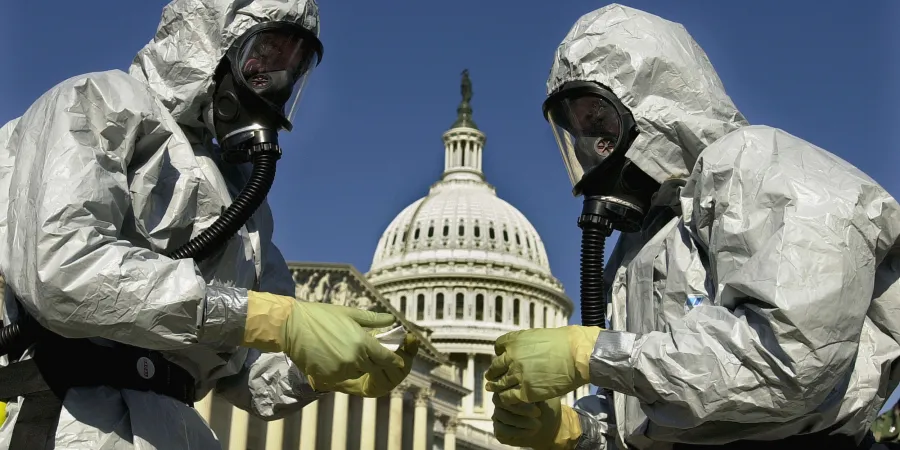Report: Is North Korea Developing Bio-Weapons
Biological weapons in North Korea: What do we know and what is still uncertain
Dan Arkin
| 09/10/2017
Researchers with Belfer Center for Science and International Affairs at the Harvard Kennedy School teamed up with intelligence firm AMPLYFI to examine whether North Korea has developed Bio-Chemical capabilities.
According to the report, the current status and the future of North Korea’s Bio-Weapons program remain unclear; however, government statements, defector testimonies, and circumstantial evidence such as the smallpox vaccination of North Korean soldiers that at least in the past, North Korea has held an interest in developing biological weapons.
The researchers assume that North Korea has several pathogens in possession to include Bacillus anthracis (Anthrax), Clostridium botulinum (Botulism), Vibrio cholerae (Cholera), Bunyaviridae hantavirus (Korean Hemorrhagic Fever), Yersinia pestis (Plague), Variola (Smallpox), Salmonella typhi (Typhoid Fever), Coquillettidia fuscopennata (Yellow Fever), Shigella (Dysentery), Brucella (Brucellosis), Staphylococcus aureus (Staph), Rickettsia prowazekii (Typhus Fever), and T-2 mycotoxin (Alimentary Toxic Aleukia), the report notes.
The ROK Ministry of National Defense assessed that North Korea may even have capabilities to weaponize them. The most recent statement made by the South Korean Defense Ministry is that "North Korea has 13 types of BW agents which it can weaponize within ten days, and anthrax and smallpox are the likely agents it would deploy."
Biological weapons in North Korea: What do we know and what is still uncertain
Researchers with Belfer Center for Science and International Affairs at the Harvard Kennedy School teamed up with intelligence firm AMPLYFI to examine whether North Korea has developed Bio-Chemical capabilities.
According to the report, the current status and the future of North Korea’s Bio-Weapons program remain unclear; however, government statements, defector testimonies, and circumstantial evidence such as the smallpox vaccination of North Korean soldiers that at least in the past, North Korea has held an interest in developing biological weapons.
The researchers assume that North Korea has several pathogens in possession to include Bacillus anthracis (Anthrax), Clostridium botulinum (Botulism), Vibrio cholerae (Cholera), Bunyaviridae hantavirus (Korean Hemorrhagic Fever), Yersinia pestis (Plague), Variola (Smallpox), Salmonella typhi (Typhoid Fever), Coquillettidia fuscopennata (Yellow Fever), Shigella (Dysentery), Brucella (Brucellosis), Staphylococcus aureus (Staph), Rickettsia prowazekii (Typhus Fever), and T-2 mycotoxin (Alimentary Toxic Aleukia), the report notes.
The ROK Ministry of National Defense assessed that North Korea may even have capabilities to weaponize them. The most recent statement made by the South Korean Defense Ministry is that "North Korea has 13 types of BW agents which it can weaponize within ten days, and anthrax and smallpox are the likely agents it would deploy."



